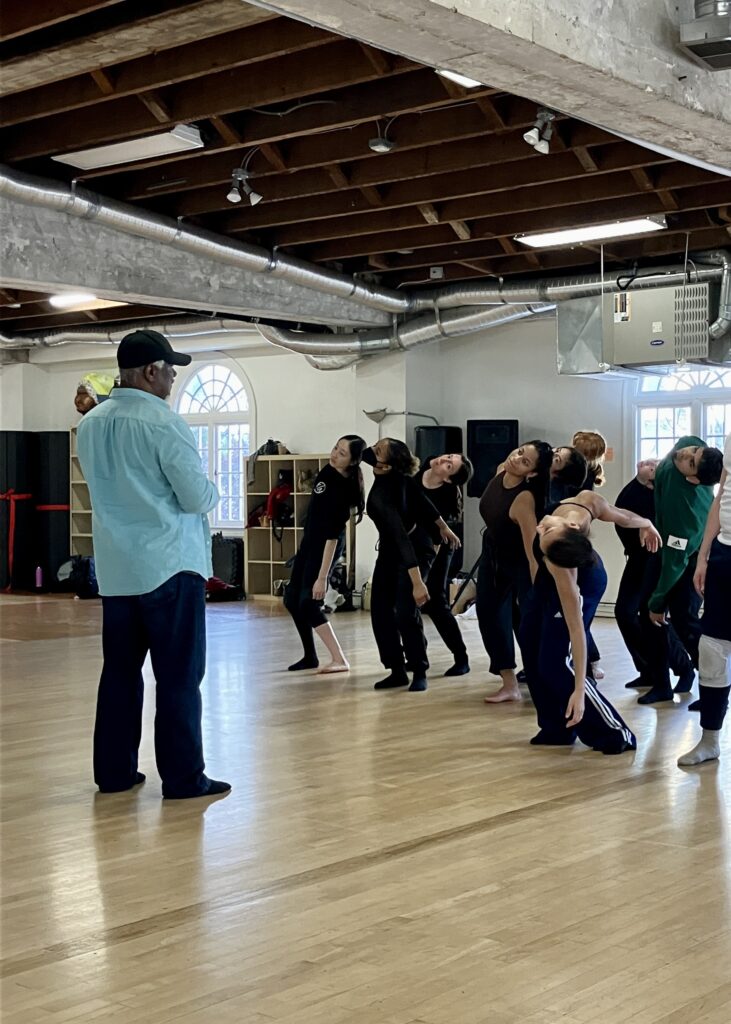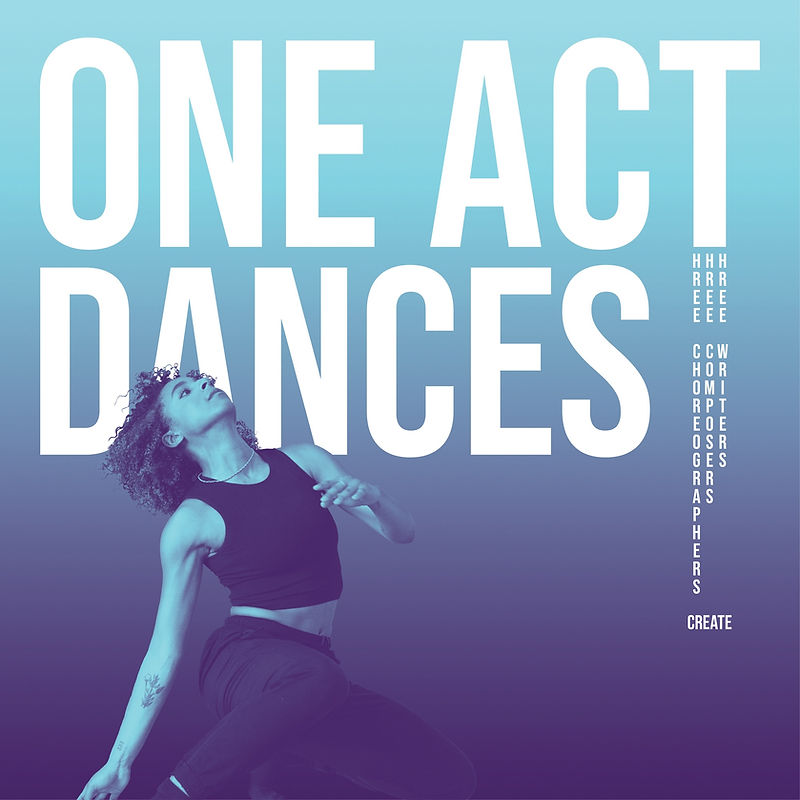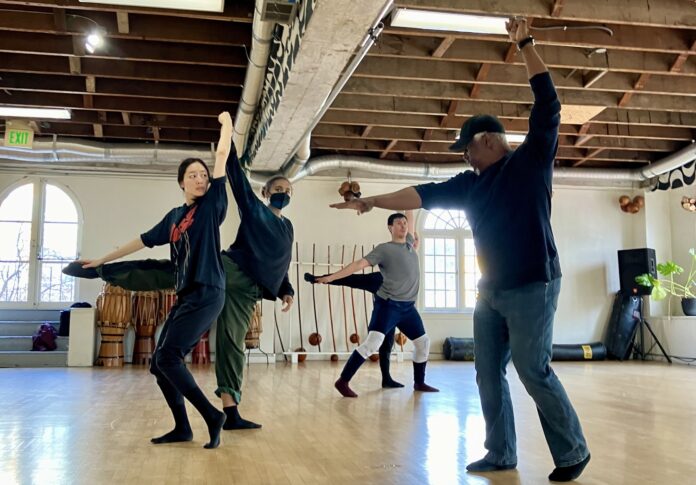I talk to choreographer Robert Moses all the time. He is my husband, partner, and co-parent, so I’m familiar with how he thinks, but not always with what he is thinking. Robert is constantly reading multiple texts at once, listening to new music, ingesting news and media with a seemingly limitless appetite, and yet he also creates with a quietude and focus I’ve often marveled at. He has the ability to make connections among all the many inputs feeding his interests and then somehow convey them to dancers who embody those ideas and emotions in his works.
With the upcoming premier of New Legacies: One Act Dances (Fri/15-Sun/17 at Presidio Theatre, SF) Robert has taken on a beast of a project, involving the collaborative input of over 22 artists, all focused on the topic of censorship. His aim is to amplify as many voices as possible to be heard on this topic of silence and erasure. Three teams, each composed of a choreographer, composer, writer and four-six dancers, have been engaged to address censorship in their own way. The result will be three separate works—One Act Dances—that will be performed on the same evening for the first time when the Robert Moses’ KIN season opens next weekend.
Robert explains, “I’ve been getting information about different situations. Teachers are afraid to teach. Kids are narcing on their teachers who are afraid they are going to lose their pensions because someone is going to call them out. Kids who can’t go to school because they have the wrong hairstyle.“ In addition to choreographing and running his dance company, Robert Moses’ KIN since 1995, Robert has been an educator and master teacher around the world for companies and in higher education since the early 1990s, and more recently through his company’s growing education program called Bootstraps: Lyric Legacies. He occupies educational and creative spaces all the time.
Asked why he chose this topic as the centerpoint to his company’s season, he explains his yearning for rigor, reason, and humor on the subject. “There are certain folks that I miss in this moment with everything that is going on in this country,” he says. “I miss Christopher Hitchens and his ability to cut through hypocrisy. I miss James Baldwin and his ability to talk about the ills in society and how we are the way we are. And I miss Nora Ephron because there is a sort of human side to her work, a humor that makes it possible to see what is plain and to speak to that plainness in a way that can register with more than one person.”
Regarding the current political and cultural debate around banning books: “The behavior is adolescent. We’re not making room for other people to be human enough or make way for their existence. There’s a body to culture and we’re cutting off the legs and arms. We’re thinking about culture not being valid. It’s not science. We’re not trying to get the car to run with less gas. We all take different routes, but we want everyone to get in the car and take the same route. ‘You should only be able to see those trees, and that housing development, and that grocery store with only what it sells.’”

He agrees that censorship isn’t just about cultural trends or social debates, of course. It’s clear that power is the primary incentive fueling this trend. By censoring books and classroom content, one can redirect the support of the public, reshape political debate, design clear targets for who is to be listened to and who is to be quieted. A quick Google Search for “banned books” yields a trove of recent news articles reporting the banning of hundreds of titles from Florida to Utah, ranging from Anne Frank’s “Diary of a Young Girl” to “Merriam-Webster’s Elementary Dictionary,” to that of 48 Hills’ publisher. Much more than just self-expression is at stake.
Robert adds, “Yes, Mitch McConnell did lie about whether or not you could appoint someone during an election year then rushed someone through when he wanted to. It’s about keeping certain legacies in power, absolutely. But the larger societal effect is this: making sure that kids in the classroom don’t know how to think about Rosa Parks if the story becomes that she was just tired and so she took a seat, rather than the truth that the NAACP worked with Parks to be the activist in that moment. Silencing of truth is a silencing of education. We talk about the 1963 March on Washington, but we don’t talk about A. Philip Randoplph’s march to Washington in 1941 with the Pullman porters. That’s not just censorship. That’s silencing, and silencing is what’s really dangerous.”
Perhaps part of the problem is social media and the fact that we’re curating our own experiences of the news and culture. We’re self-censoring who we listen to and where we get our facts, avoiding the uncomfortable or the unfamiliar in favor of issues tailor made to our own interests. The trend has picked up steam with election recalls, the reversal of Affirmative Action and the whiplash to dismantle DEI (diversity, equity and inclusion) oversight in corporate America and higher education when just a few years ago anti-racist practices in these spheres was a primary focus.
“The problem is there are so many megaphones that it’s hard to hear the different, fractured voices. In a way, when it’s too many people talking too much about anything, it becomes white noise.” Robert says.
“It’s not just about censorship, it’s about what you learn, when you learn it and who you learn it from. When Glen Beck said, ‘You’ don’t own Martin Luther King,’ that wasn’t an inclusive comment. When you silence a hero and put different words in their mouth then you are effectively managing the education of culture. You’re not changing history. You can’t change it, it is what it is. You’re erasing it. Once a truth is in the world it doesn’t change, but you can change the way we see it. One plus one never equals three because you don’t have a right to that child because slave lineage has to follow the woman, and then you lie about why the men aren’t there despite siring all the children through the enslaved women.”

With so many artists contributing to One Act Dances, what does Robert expect to be the result? By design, he has little to no influence on the artists as they assemble their dances. He explains, “We had a panel select the artists from the people who applied, and then we extended invitations to others, namely the composers and writers. I then put them into the creative teams. They have free reign as long as they are in some way addressing the issue of censorship and what that might mean to them.”
For his own contribution to the subject, Robert is making a separate work drawing from his previous work Fugitive Legacies, his own musical compositions, and music by PC Muñoz and improvisational jazz musician Gerald Clayton with Aja Monet and Carl Hancock Rux. Robert’s own writing, namely A Cleaning Woman’s Reflection on Creation, also informs his new piece, which he describes as, “Cyclical and about loss and reacquisition of knowledge, and it’s about hubris and creating totems or structures that you give power or that you create for other people.”
Also figuring into Robert’s piece is material generated by the kids and elders who participate in Bootstraps: Lyric Legacies, the focus of which is to work with participants to cultivate their stories through movement, storytelling and music. Bootstraps has engaged nearly 2000 students this academic year alone through school residencies and performances throughout San Francisco. The inclusion of different generational perspectives is an interesting one, specifically because book banning in particular is often couched as an attempt by adults to protect children from unsavory or damaging content.
I asked Robert to comment about legacy. It’s something we’ve discussed peripherally in recent years, as we’ve each worked in the dance field for over 30 years. Plus, the word legacy figures prominently in the naming of the upcoming season and the RMK educational programming, so it seems to be something he’s thinking about. What does he hope for the legacy of Robert Moses’ KIN? He answers, “I don’t know that I’m thinking about legacy in terms of me. I’m not going anywhere anytime soon. What I’d like to leave is something that is reenergizing for the culture. Something that says, ‘Here’s a small chunk of this moment of who we are as a culture and it’s a huge, growing and invigorating thing.’”
ROBERT MOSES’ KIN PRESENTS NEW LEGACIES: ONE ACT DANCES Fri/15 through Sun/17 at Presidio Theatre, SF. Tickets and more info here.







